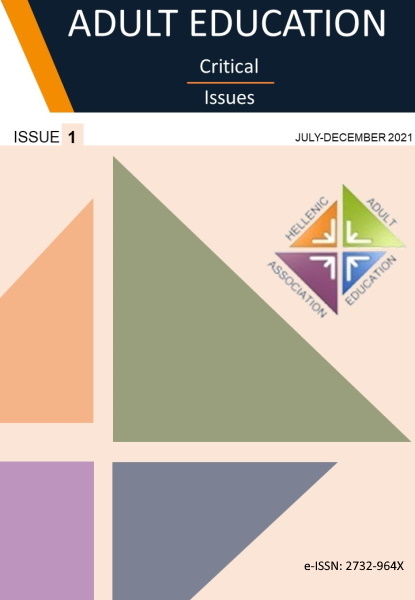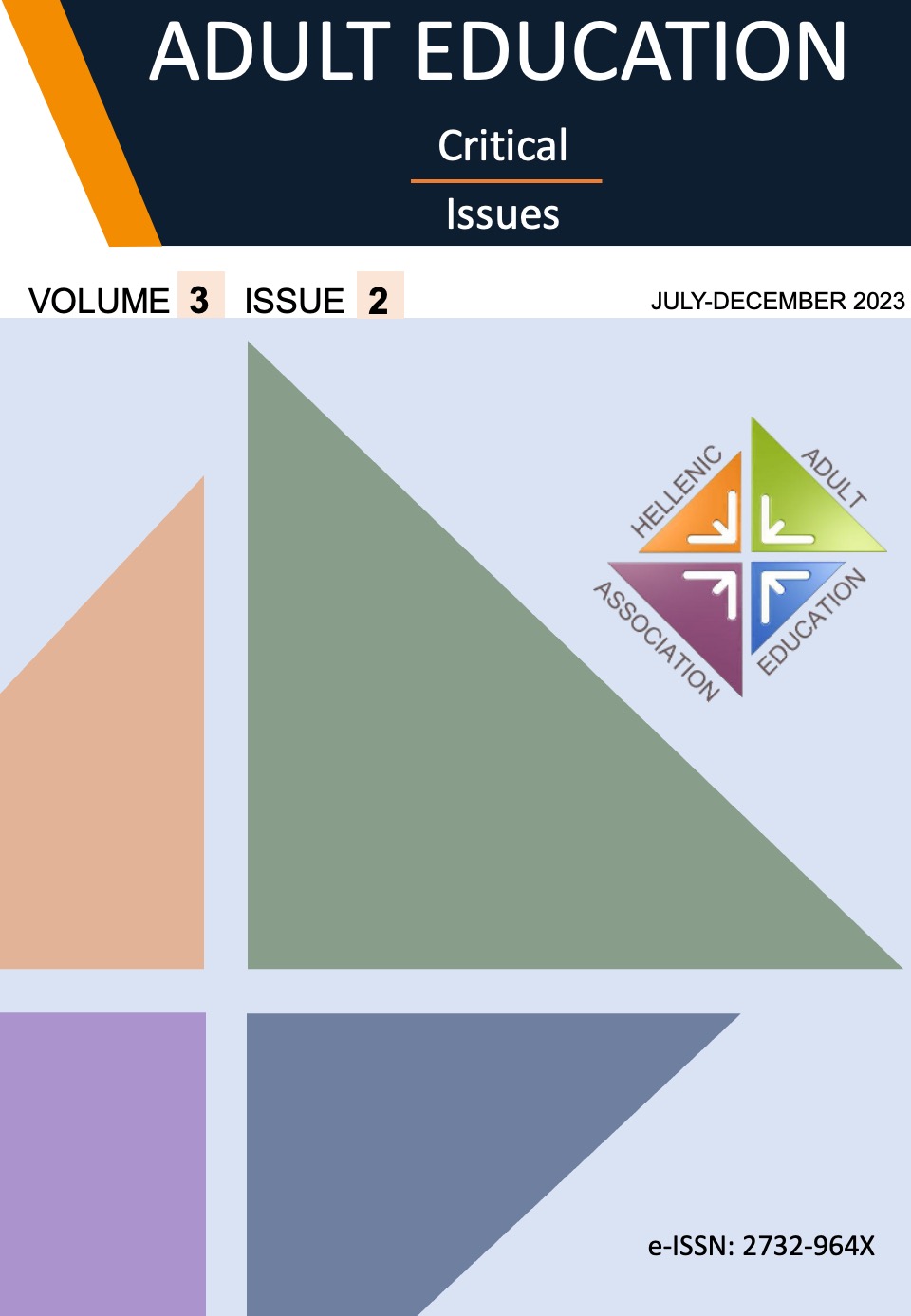Επαγγελματική εκπαίδευση και κατάρτιση στη σφαίρα της κοινωνικής οικονομίας: Μια συγκριτική ανάλυση πέντε χωρών της ΕΕ
Resumen
Το παρόν άρθρο αποτελεί ένα συνδυασμό κειμένου πολιτικής και ερευνητικής εργασίας καθώς, με βάση πρωτογενή στοιχεία, αναπτύσσει την κατάσταση της Επαγγελματικής Εκπαίδευσης και Κατάρτισης (εφεξής ΕΕΚ) για την Κοινωνική και Αλληλέγγυα Οικονομία (εφεξής ΚΑλΟ) και διερευνά τα συναφή εκπαιδευτικά προγράμματα ως βασικό μηχανισμό υποστήριξης της ΚΑλΟ στην Ευρωπαϊκή Ένωση. Επιπλέον, αυτό το άρθρο δείχνει ότι η σύνδεση μεταξύ ΚΑλΟ και εκπαίδευσης ενηλίκων δεν είναι τυχαία, αλλά βασίζεται σε συγκλίνουσες αρχές αυτών των δύο πεδίων, και ειδικά στο κοινό τους αξίωμα ως προς την προοπτική μετασχηματισμού της κοινωνίας. Τα εμπειρικά δεδομένα της έρευνας προέρχονται από πέντε χώρες (Γαλλία, Ελλάδα, Ιταλία, Κροατία και Τσεχία) οι οποίες συμμετέχουν σε ευρωπαϊκό πρόγραμμα που συντονίζει το ΙΝΕ ΓΣΕΕ. Το παρόν κείμενο πολιτικής έρχεται να καλύψει ένα κενό στη βιβλιογραφία της ευρωπαϊκής ΚΑλΟ, δεδομένου ότι πρόκειται για ένα σύγχρονο, ελάχιστα διερευνημένο πεδίο γενικά, και ειδικότερα ως προς τη σύνδεσή του με την ΕΕΚ. Η σημασία αυτού του άρθρου είναι ακόμη πιο μεγάλη ενόψει των συνεχιζόμενων κοινωνικοοικονομικών κρίσεων (π.χ. χρηματοοικονομική, υγειονομική, περιβαλλοντική κρίση), οι οποίες αναδεικνύουν το γεγονός ότι οι προοπτικές της ΚΑλΟ δεν μπορούν πλέον να απουσιάζουν από την πολιτική ατζέντα.
Article Details
- Cómo citar
-
Apostolopoulos, N., Goulas, C., Koukouris, A., & Papageorgiou, I. (2021). Επαγγελματική εκπαίδευση και κατάρτιση στη σφαίρα της κοινωνικής οικονομίας: Μια συγκριτική ανάλυση πέντε χωρών της ΕΕ. Adult Education Critical Issues, 1(1), 41–54. https://doi.org/10.12681/aeci.28798
- Sección
- Articles

Esta obra está bajo una licencia internacional Creative Commons Atribución 4.0.
Authors who publish with this journal agree to the following terms:
- Authors retain copyright and grant the journal right of first publication with the work simultaneously licensed under a Creative Commons Attribution License that allows others to share the work with an acknowledgement of the work's authorship and initial publication in this journal.
- Authors are able to enter into separate, additional contractual arrangements for the non-exclusive distribution of the journal's published version of the work (e.g., post it to an institutional repository or publish it in a book), with an acknowledgement of its initial publication in this journal.
- Authors are permitted and encouraged to post their work online (e.g., in institutional repositories or on their website) prior to and during the submission process, as it can lead to productive exchanges, as well as earlier and greater citation of published work (See The Effect of Open Access).




